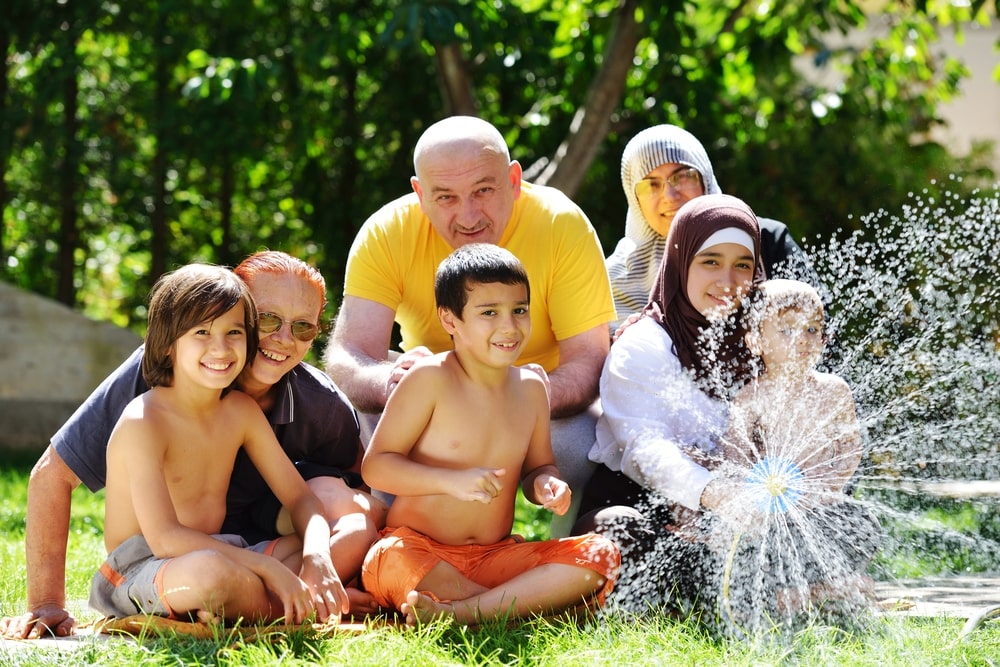

Foster Care Program (HOPE4KIDS)
Can you offer a child a home?
There are many vulnerable children and young people in out of home care. Approximately 11,000 at any one time. Of these, approximately 2000 are aged between 0 and 5 years of age. These children have been displaced for various reasons, and they need our love and support so they can thrive and prosper in our society.
The current shortage of foster carers means some children’s rights to live with families from their specific faiths and cultures are not always met. Building strong communities means working together to ensure that no child is left behind.
Our Story
It started in 2018 with a simple text our Founder Manal Shehab sent via a Whatsapp Group after receiving information that 5 siblings were in need of temporary care whilst their mum received the support she needed to get back on her feet. The text started with “THEY ARE OUR CHILDREN”.
The plea went viral within hours partly due to the tragic case of the siblings and predominately due to the generous nature of our community. Ms. Shehab receiving calls from all over Australia and even from overseas couples. Unfortunately, whilst the community rallied behind Ms. Shehab and wanted to support whatever way they could, none were registered foster-carers. Ms. Shehab realised the gap and recognises that as a Muslim Community, with specific faith and cultural needs that mainstream services don’t always recognise or address, we need our own systems or structures put In place to protect our most vulnerable from falling through the cracks.
OUR CHILDREN are OUR FUTURE.
This tragic event has been a huge wake up call for our community. We recognize that every family needs support from time to time. Whatever families are facing, our specialist teams run group sessions and one on one sessions to support parents make better decisions, gain independence and take control of their lives. Hope4Kids offers expert and proven support designed to keep families healthy, connected and in control. These include a broad range of inclusive family and parenting services and programs offered across the State.
What we do:
- Assess your needs and preferences
- Conduct full eligibility assessment
- Provide you with accredited training
- Provide placement support
- Ongoing placement planning and development
- Co-ordinate care team meetings
- Be there for you when you need us
- Link you with relevant referral pathways for you and child/ren as required
- Be considerate of importance of cultural and religious requirements
How to become a foster carer:
You could be working full-time, part-time or not at all. You can be single, married, in a de facto relationship or in a same-sex relationship. What a foster carer needs most of all is a big heart and a lot of patience.
Each day people from all walks of life are opening their homes to vulnerable children and young people, but we need more people like them. Whether you have days, weeks, months or years to spare, there’s a child who could benefit from your love and kindness.
You:
- are ideally over the age of 25
- are an Australian citizen or permanent resident
- are in good health
- do not have an unfavourable criminal record
Types of Care:
Short-term foster care
Short-term foster carers look after children experiencing a short-term family breakdown or children who are waiting for a long-term foster carer to be found. You would be asked to make a commitment to one child or a group of brothers and sisters at any one time. Generally children requiring care will be 0-12 years of age.
Placement can range from a few months up to a period of two years. If restoration to the birth family is not successful, a plan will be implemented to support the transition of the child or young person into permanent care.
Permanent foster care
Permanent carers are needed for children generally aged 5-12 years who the Court has ruled will never be able to return to their birth parents because it is not safe.
In long-term care we carefully match children and carers to find our children a permanent home. Some children have been very damaged by their previous abuse and neglect. Carefully matching placements, along with the support our foster carers receive from us, ensures the placement has the best chance of success.
Long-term foster care has a strong focus on permanency planning but also places emphasis on maintaining birth family relationships, which are important to children who are in foster care. We believe that children who enter the care system have a right to the same opportunities and safeguards as children who remain with their birth families.
Immediate or crisis care
Emergency placements are for children who need an urgent placement because there are concerns for their immediate safety. These placements can occur after-hours and on weekends. Emergency carers need to be able to provide care for very young children at short notice.
Respite foster care
Respite carers generally offer one weekend every month to look after a foster child. Respite carers provide foster children with a wider social network and give the primary carers a break to recharge their energy.
Kinship Care
The term kinship care refers to arrangements whereby children live with and are cared for by relatives, family friends or community members with the same cultural ties
Teenage Foster Care
This type of care provides young people aged 13 to 17 with a safe and loving home and links them in to other support services including counselling, family mediation, financial assistance, or help with school. You can choose to provide emergency, respite, short or long term care to young people in the program. Having a supportive adult helps teenagers develop a sense of self-worth and confidence, and a belief that they can have a bright and happy future.
Sibling Foster Care
This is where you provide care for two or more children from the same family. Unfortunately, a child needing foster care often has a sibling or siblings also needing foster care. Keeping siblings together is critical for maintaining their close bond and attachment, and prevents further complex trauma as a result of them being separated.
Therapeutic Foster Care
Therapeutic foster care is where foster carers are provided with additional specialist training and support. They work closely with a team of professionals to provide care for children and young people who need therapeutic responses to their specific needs.
Adoption
You do not need any special qualifications to be an adoptive parent. The experiences and skills of all families are welcome.
Making sure you are ready to adopt means considering the needs of any children already in your family, especially infants under one year old. It also means considering plans you may have for fertility treatment, surrogacy or pregnancy.
When a parent consents to the adoption of their child, they are often involved in selecting the adopting family.
Children who require adoption often have additional needs that need to be supported.
These can include:
- ongoing contact with their natural family
- disability or significant health issues
- vulnerability to developing health issues later in their childhood
- complex backgrounds
- developmental trauma and,
- a culturally or linguistically diverse background.
Birth parents may express wishes relating to:
- the background of the applicants
- location of the family home
- religion
- occupations
- values
- many other factors that may be important to them.



